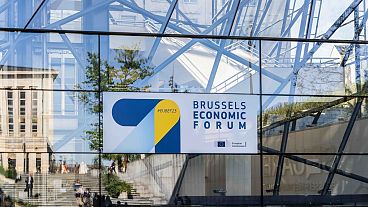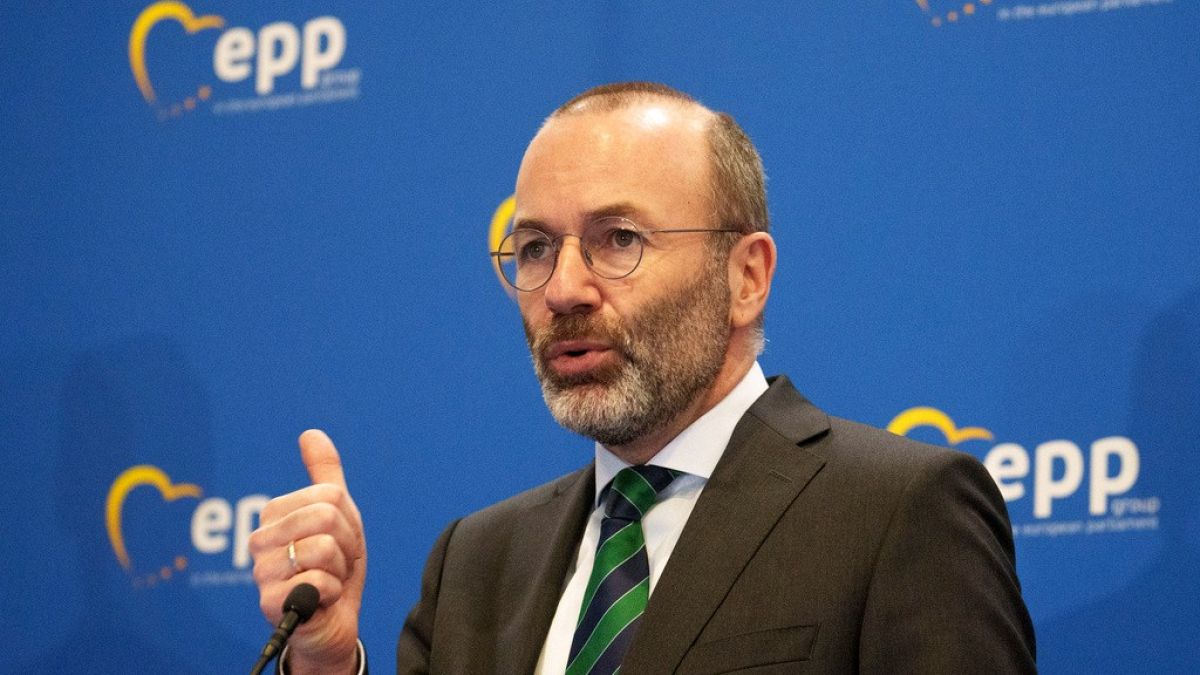With fears over NATO’s credibility, the idea of a homegrown alternative is playing into Germany’s domestic political debate.
A French plan to offer a nuclear umbrella to Europe has met with support from the German MEP who heads the European People's Party, Manfred Weber, playing into the domestic political debate ahead of June EU elections.
Russia’s invasion of Ukraine, and the prospect that a second Donald Trump presidency might weaken the transatlantic alliance, has raised the salience of having a homegrown alternative to NATO.
In a TV clip which issued on Thursday (9 May), Weber suggested he favoured plans put forward by French President Emmanuel Macron, and criticised left-wing Chancellor Olaf Scholz for his failure to engage.
“This is an offer of France which we must talk about,” Weber said on a panel hosted by Bavarian TV station BR24, after Macron proposed to extend security guarantees based on nuclear deterrence, adding: “I am disappointed that Olaf Scholz, the federal government, is voiceless, that there is absolutely no answer for this proposal.”
Macron “is broadening the conception of France’s national security from a purely territorial concept into a European one,” Weber said. “He is ready to say: the security order of France is attacked when Lithuania is attacked."
In a wide-ranging speech on European policy in late April, Macron said France’s nuclear deterrent was an “indispensable element of the defence of the European continent".
Fears over Europe’s ability to defend itself were raised after Trump suggested he wouldn’t leap to the rescue of allies who didn’t spend enough on their militaries, undermining the treaty commitments that underpin NATO.
France is the only remaining nuclear power within the EU, though it isn’t immediately clear what role Brussels, or MEPs such as Weber, might play in developing the idea.
The European Commission is attempting to coordinate military production by its members to help arm Ukraine, and its President Ursula von der Leyen has said she’ll make defence a central plank of a hoped-for second term in office.
But the EU also includes neutral members such as Ireland and Austria, and is precluded under its founding treaties from buying weapons directly.
In February, Scholz – a socialist who leads a coalition that also includes the green and liberal parties – told German newspaper the Süddeutsche Zeitung, “I don’t think much of this debate” concerning a European nuclear guarantee, citing NATO membership and the country’s decision not to seek its own atomic weapons.
Earlier this week, Russian President Vladimir Putin ordered tests of tactical nuclear weapons, in an apparent warning to Ukraine’s allies to back off.


